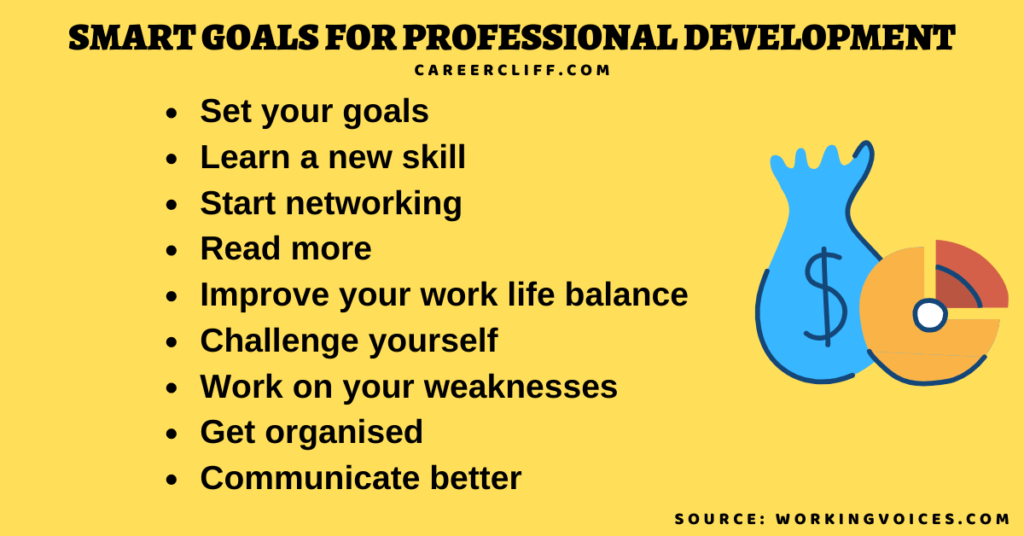We’ve all been there. We start the year brimming with resolutions: get fit, learn a new language, and finally write that novel. But by February, enthusiasm wanes, replaced by nagging guilt and the sinking realization that those goals are fading into the background. The problem? Vague aspirations are notoriously difficult to achieve. Enter SMART goals, the secret weapon for transforming those hazy dreams into tangible accomplishments.
What are SMART Goals?
SMART is an acronym that stands for:
- Specific: Clearly define your goal. Instead of “get in shape,” aim for “run a 5K race within 6 months.”
- Measurable: Establish a way to track your progress. How many pounds will you lose? How many words will you write per day?
- Achievable: Be realistic. Don’t expect to run a marathon if you haven’t jogged in years. Set a goal that challenges you but remains attainable.
- Relevant: Ensure your goal aligns with your overall values and priorities. Does learning French support your career aspirations or travel dreams?
- Time-Bound: Set a deadline to create a sense of urgency and keep yourself accountable. When will you complete your novel’s first draft?
Why are SMART Goals Important?
The difference between SMART goals and vague aspirations is profound. SMART goals provide clarity, a roadmap that guides your efforts and keeps you focused. They eliminate ambiguity, ensuring you’re working towards a well-defined target.
Furthermore, SMART goals boost motivation. Measurable progress allows you to witness your improvement, fueling a sense of accomplishment and encouraging you to keep pushing forward. Imagine the satisfaction of checking a completed task off your list or hitting a new personal best. These small victories act as stepping stones, building momentum and propelling you closer to your ultimate goal.
Setting Your First SMART Goal

Let’s make this practical. Perhaps you’ve always wanted to learn to play the guitar. Here’s how to turn that dream into a SMART goal:
- Specific: I will learn to play three basic guitar chords (C, G, D) within the next four weeks.
- Measurable: I will practice for at least 30 minutes, three times a week, and track my progress through an online learning platform.
- Achievable: These chords are considered beginner-friendly, and the practice schedule is realistic for a busy schedule.
- Relevant: Learning guitar aligns with your desire to express yourself musically.
- Time-Bound: The four-week timeframe creates a sense of urgency and a clear target to work towards.
Examples of SMART Goals Across Different Areas
SMART goals can be applied to any aspect of life. Here are a few examples:
- Career: I will complete two online courses relevant to my field by the end of the quarter to enhance my job skills.
- Health: I will lose 5 pounds in the next two months by incorporating healthy meal prepping and attending a weekly fitness class.
- Personal Development: I will dedicate 15 minutes each day for the next month to learn the basics of meditation and practice mindfulness techniques.
Common Pitfalls to Avoid When Setting SMART Goals

While SMART goals are powerful, there are pitfalls to watch out for. Setting unrealistic timelines or goals that are too ambitious can lead to discouragement and ultimately derail your progress.
Another common mistake is a lack of specificity. Instead of “eat healthier,” choose “pack my lunch three times a week with at least two servings of vegetables.” The vaguer the goal, the easier it is to slip back into old habits.
Tips for Making Your SMART Goals Stick
Here are some practical tips to ensure you stay committed to your SMART goals:
- Track your progress: Use a journal, app, or progress chart to monitor your development. Seeing visual evidence of your hard work is a powerful motivator.
- Celebrate milestones: Acknowledge your achievements, no matter how small. Reaching a halfway point or mastering a new skill deserves recognition. Reward yourself for staying on track.
- Find an accountability partner: Having a friend or colleague who knows about your goals can provide encouragement and keep you honest.
- Break down large goals into smaller steps: Feeling overwhelmed by a big goal can be paralyzing. Chunk it down into manageable tasks, creating a clear roadmap to success.
The Power of SMART Goals for Long-Term Success
The beauty of SMART goals lies in their ability to build momentum. Achieving smaller, well-defined goals instills confidence and a sense of accomplishment. This positive reinforcement fuels the motivation to tackle progressively more challenging goals.
Imagine conquering your 5K race. The sense of accomplishment will likely inspire you to set a new running goal, perhaps a longer distance or a faster time.
SMART Goals and Personal Growth

SMART goals aren’t just about achieving specific outcomes; they’re also instrumental in fostering continuous learning and development. By setting SMART goals focused on acquiring new skills or improving existing ones, you embark on a journey of self-discovery and growth.
- Specific: I will join a local Toastmasters club and participate in their meetings at least twice a month for the next three months to improve my public speaking skills.
- Measurable: I will track my progress by recording myself delivering short presentations at home and evaluating areas for improvement like clarity, delivery, and body language.
- Achievable: Joining a supportive group like Toastmasters provides a safe space to practice and receive constructive feedback.
- Relevant: Developing public speaking skills can benefit your career or personal life, allowing you to express yourself more effectively.
- Time-Bound: The three-month timeframe establishes a clear deadline and encourages consistent participation.
As you hone your public speaking skills through this SMART goal, you’ll not only gain confidence in presenting but also develop valuable communication and leadership abilities. This newfound confidence can translate into other areas of your life, empowering you to take on new challenges and embrace opportunities for personal growth.
Conclusion
SMART goals are the bridge between aspirations and achievements. They transform vague wishes into actionable plans, guiding your efforts and keeping you laser-focused on what matters most. Remember, achieving anything worthwhile takes dedication and consistent action. By embracing the power of SMART goals, you equip yourself with a powerful tool to unlock your full potential and turn your dreams into reality.




